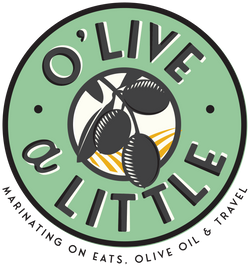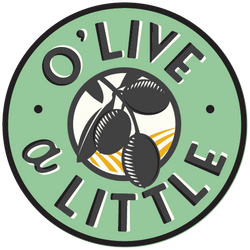
An Introduction to Lebanese Food & Culture
In June 1989 I met my husband Matthew. For our first date we went to lunch at Abbott’s in Noank, CT. I remember standing in line waiting to place our lobster order, talking and asking all those typical first date questions. With the last name of “Ostrowski”, I knew he was Polish; but, he was tall, dark and handsome (and still is!), he couldn’t be all Polish. So I asked, “what nationality are you?”, “Guess” he said. So, I said the most logical answer, “Italian”. “Nope, guess again” he said. “Greek?” “No, I’m half Lebanese”.
At the time, my knowledge of Lebanese or Middle Eastern cooking was limited to Hummus and Tabbouleh, which on the occasional time I ordered it, I always thought “what is the big deal?” … because it was never very good. Back in the mid 80’s hummus and tabbouleh started showing up on menus… touted as “healthy”, many health food / specialty delis added these dishes to their menu. It wasn’t until August 1989, when Matt took me to meet his parent’s in Buffalo, New York, that I had a revelation. Matt’s mom, Yvonne, being 100% Lebanese made me hummus, tabbouleh, kibbeh and more. At that moment, I understood what the big deal was all about. Real Tabbouleh is made with 98% parsley, with only 2% wheat (not the other way around), And, good hummus has just the right creamy balance of lemon juice, olive oil, chickpea, garlic, Tahini (sesame Paste) and spices.
A Look at Lebanon
Situated on the eastern coast of the Mediterranean Sea, Lebanon is about three-fourths the size of the state of Connecticut. For 400 years the Ottoman Turks controlled Lebanon and thus had a major influence on their food. They introduced olive oil, stuffed vegetables, nuts, baklava, lamb and yogurt. After World War I, France took control until Lebanon won its independence in 1946. With the French food culture the Lebanese were introduced to flan, buttery croissants and dairy. It is this ancient and rich Arabic-French influence that makes Lebanese Cuisine some of the most delicious in the world. But, still for most people taste buds, the amazing foods and flavors of this area of the world are unknown.
Lebanese Food - Delicious and Healthy!
Lebanese cuisine is not only known for its incredible flavor, but also for its health benefits. Lebanese recipes offer a variety of health benefits because of the low fat and high vitamins in each dish. These benefits can be attributed to the olive oil usage in each recipe. The lebanese culture uses olive oil as a base ingredient, making their dishes much healthier than other cultures, especially America. In the United States it is customary to cook with dairy products as a base and many people do not realize how detrimental this can be to one's health. Lebanese dishes do wonders to lower cholesterol, control blood sugar, and overall boost heart health. At O’Live A Little it is important to us that we not only share with you the taste and culture of Lebanon, but also express the impact it can have on your overall health and lifestyle. Our Olive Oil products are the perfect base for Lebanese recipes and can become the perfect alternative to unhealthy bases you may be using in your meals!
Incorporate Lebanese Food into your Lifestyle Today!
For twenty seven years now I have been making this amazing food. Stuffed grape leaves, lentils and rice, kibbeh, stuffed squash, fattoush, baklava, garlic sauce, tahini sauce, meat pies, and of course tabbouleh and hummus. Every time we sit down to feast on this most delicious food I always say “This food is so delicious! I can’t believe there is not a Lebanese restaurant in every town, like there are Italian restaurants!” It’s just that good!
Our Very Own Healthy & Easy Lebanese Recipes
Stuffed Grape Leaves, Hummus, Tabbouleh, Kibbeh (the most delicious meatloaf you will ever have), Falafel & Baklava are the most popular Lebanese staples some people are familiar with. They are very easy to make (although, some recipes are a bit more time consuming than others). The Middle Eastern Kitchen is filled with the aromas of parsley, allspice, cumin, cinnamon, lemon and thyme. Make sure you have these items in your pantry along with a few cans of chickpeas and Tahini and you can be cooking Middle Eastern Style in no time! Enjoy our healthy Hummus and Tabbouleh recipes. These are quick recipes to start with that are perfect for beginners. Keep up to date with our O’Live A Little Blog to see all our delicious recipe updates. Stick with us and you’ll be rolling your own grape leaves and making Kibbeh in no time! Checkout These Great Lebanese Recipes!
The Best Lebanese Recipes
If you don’t have a local Lebanese restaurant, that’s quite okay. We have some amazing Lebanese recipes to share with you, and you will have some fun creating your own versions of these great recipes.
Traditional Lebanese Hummus with Za’atar Chips: one of the most important things when you are making your hummus is to use the very best quality olive oil you can find to drizzle on top. Even better, try our lemon lovers extra virgin olive oil on top of the hummus for an extra bit of flavor - it adds a very nice touch.
Lebanese Tabbuli: Parsley Salad with Wheat
Lebanese Fattoush Bread Salad


